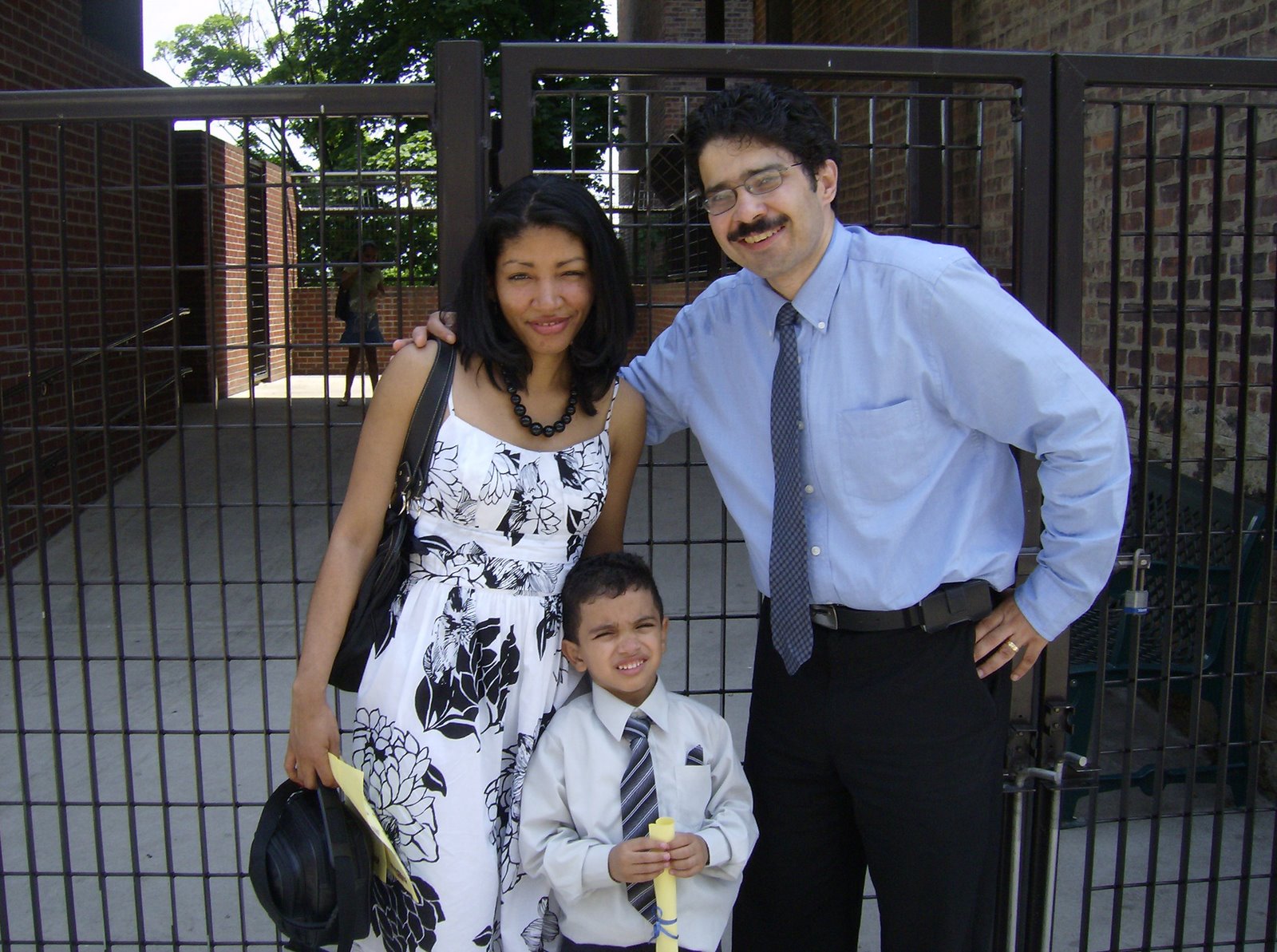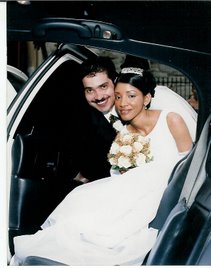
Max (6/14/2008)
“ Great Sermon! ”I listened to this sermon to find out if Pastor Paul Washer was encouraging rap music. He was just defending biblical truth. For that reason I truly enjoyed this sermon. However I do not agree with the fact that some christians are using rap music to preach the gospel. Knowing the origins of Hip Hop, I will go as far to say that it has no business in the Church no matter how biblical these rappers may be, for the same reason that strange fire should not be presented to a Holy God. Remember that Aaron's sons were killed for doing so (Leviticus 10: 1-3) We should not use the world's music to reach the lost or adapt the gospel to this culture. They will come to Jesus through the preaching of the Gospel or they will not come at all. For those who wants to know about hip hop and its origins, visit www.exministries.com and you'll understand the reason why I make this statement. The pastor is G. Craig Lewis and he has done a phenominal job at explaining what really goes on in Hip hop and why christians should never embrace it. God bless you all
Sean I (5/26/2008)
“ Thanks Paul! ”Thanks Paul for stopping long enough to get to know some of the men that are preaching the gospel through rap, and being open enough to examine the words in their music. If we are honest, most of us are closed to rap music because of our personal and cultural bias. What makes music biblical first is the content (lyrics). Secondly the instrumental accompaniment should not take away from the message. I have had the opportunity to hear a few reformed rappers. Their theology is more solid and grounded in scripture than many modern day preachers. Being part of a culture that has been dumbed down and entertained to death, I am convinced that our dead, dry, formal preaching will never reach them! A dead theological sermon or lecture will never reach a culture or the conscience that has been addicted to iPods, MySpace, music, entertainment.... My heart aches for many who will never enter the doors of our reformed churches and be classified as the “non elect”. Yet did we weep over their condition, or seek ways to reach them outside of the 4 walls. May we develop the heart of Christ, Brainerd, Carey, Taylor, Mccheyne, Elliot….And use the gifts and talents God has given us! Even if its Rap Music. Music is powerful and should be use to teach and warn.
curtis woods (5/9/2008)
“ Great Sermon! ”This sermon represents the passion of my heart! I remember when GOD, via my campus minister, confronted my mind with the GOSPEL...Now as a campus minister I long for God to truly save sinners, transforming their affections for His glory alone... Soli Deo gloria!
Carol R from Bible Belt (4/26/2008)
“ Great Sermon! ”I was surprised to hear Paul Washer encouraging the Christian rap, but as I listened, I understood his point. And then he went on to tell the rappers that they had to live a life above reproach, and to keep reaching the audience that might only listen to them. Washer then gave the gospel message in the clear, powerful style he always does. I can't get enough of Paul WAsher's sermons!
Jay Miklovic from Toledo, Ohio (4/23/2008)
“ Appreciated message ”The Gospel is wonderful, and astounding, and presented clearly in the message. It is encouraging to hear a reformed preacher encouraging reformed music (rap artists) to continue in the ministry they do. To acknowledge these men who rap truth without bashing them is a bold move for a preacher who is likely associated with many who bash the very genre of rap as being heretical or from the pit. As a caution, we are all aware that there is some really lame 'Christian' music out there in all genres that is not Christian at all. (including 'Gospel Singers')
Wherefore that much more ought we to take care not to abuse it, for fear of fouling and contaminating it, converting it to our condemnation, when it was dedicated to our profit and welfare. If there were no other consideration than this alone, it ought indeed to move us to moderate the use of music, to make it serve everything virtuous, and that it ought not to give occasion for our giving free reign to licentiousness, or for our making ourselves effeminate in disorderly delights, and that it ought not to become an instrument of dissipation or of any obscenity.”
-John Calvin
-John Calvin
It is crucial that the church’s songs be substantial enough to express accurately mature Christian belief as well as the subtlety of Christian experience…Simplistic, sentimental, repetitious songs by their very nature cannot carry the weight of Reformed doctrine and will leave the people of God ill-equipped on occasions of great moment.”
-Terry Johnson
-Terry Johnson
I know how difficult it is to persuade the world that God disapproves of all modes of worship not expressly sanctioned by his word. The opposite persuasion which cleaves to them, being seated, as it were, in their very bones and marrow, is, that whatever they do has in itself a sufficient sanction, provided it exhibits some kind of zeal for the honor of God. But since God not only regards as fruitless, but also plainly abominates, whatever we undertake from zeal to his worship, if at variance with his command, what do we gain by a contrary course? The words of God are clear and distinct, "Obedience is better than sacrifice." "In vain do they worship me, teaching for doctrines the commandments of men," (1 Sam. 15:22; Matt. 15:9). Every addition to his word, especially in this matter, is a lie. Mere "will worship" (ethelothreeskeia) is vanity [Col. 2:23]. This is the decision, and when once the judge has decided, it is no longer time to debate." (John Calvin, The Necessity of Reforming the Church
The devil has seldom done a cleverer thing than hinting to the Church that part of their mission is to provide entertainment for the people, with a view to winning them...providing amusement for the people is nowhere spoken of in the Scriptures as a function of the Church...
"The need is biblical doctrine, so understood and felt that it sets men aflame." -- Charles Spurgeon
"The need is biblical doctrine, so understood and felt that it sets men aflame." -- Charles Spurgeon
All music is a product of culture, past or present, and . . . previous historical cultures were as deeply flawed as our modern Western one. Even the Israelite culture that produced the Psalms, the ultimate book of praise songs and the only one to achieve canonical status (somethingeven Bach and Isaac Watts have failed to do), was constantly corrupted by syncretism, apostasy and sin. . . . The tendency to use what is familiar and popular—the musical vernacular—and sanctify it for holy purposes, has powerful precedents throughout church history.
–Mary L. Conway, “Worship Music: Maintaining Dynamic Tension,” McMaster Journal of Theology and Ministry
–Mary L. Conway, “Worship Music: Maintaining Dynamic Tension,” McMaster Journal of Theology and Ministry
Every complaint about worship music, no matter which style, claims to be rooted in theological principles. Yet in every critique, the theology aligns perfectly with the critic’s own musical taste. What may be more helpful instead is a pragmatic test based on a bit of wisdom from the Gospels: “The tree is known by its fruit.” If this is so, then worship music ought to be judged not by the songs themselves but by the people who sing them. Looking at the songs themselves is rather like looking at the bark of a tree and then pronouncing the tree good or bad. Better to look at the fruit itself – the lives of the people who are singing the songs. The job of the local church is to communicate the good news of Jesus Christ, to draw people into a living relationship with God, and to remold disciples of Jesus into a Sermon-on-the-Mount shape. Any worship music that aids a church in these tasks is almost certainly a conduit of the Holy Spirit. In light of this, maybe it is time to substitute charity for condescension.
–Michael S. Hamilton, “The Triumph of the Praise Songs: How guitars beat out the organ in the worship wars,” Christianity Today 43.8 (12 July 1999)
We tend to think that it’s the sacrifice that makes the person acceptable; but actually it’s the person who makes the sacrifice acceptable.
–Daniel I. Block, on the story of Cain and Abel (Genesis 4)








No comments:
Post a Comment